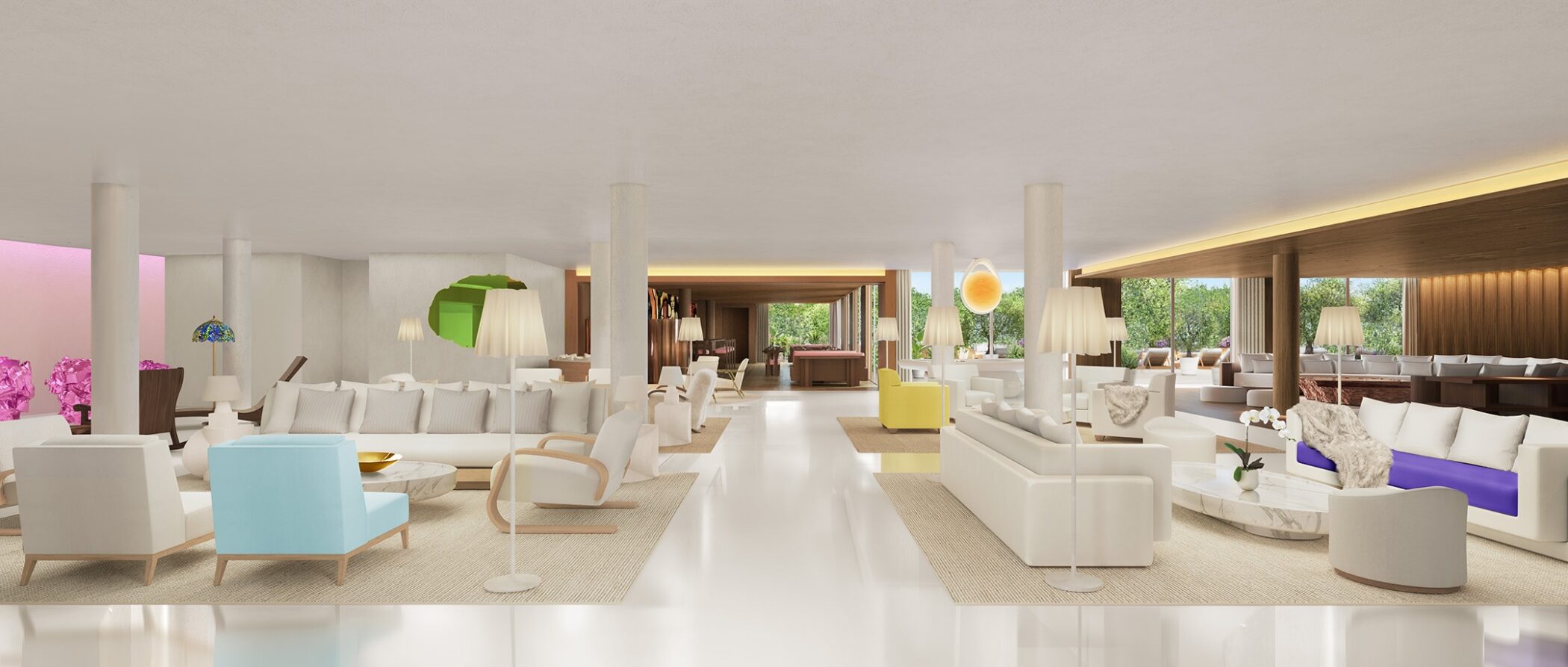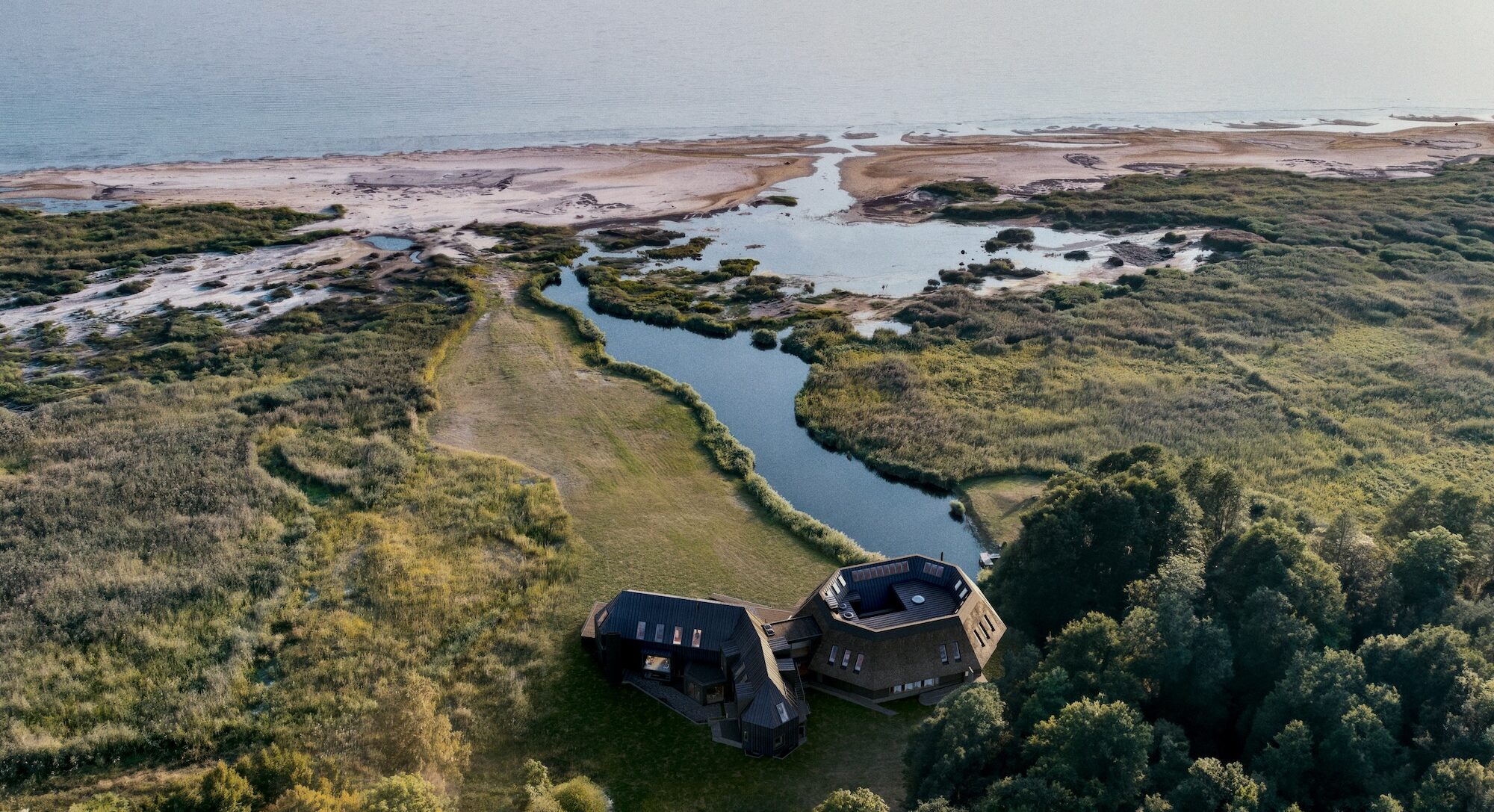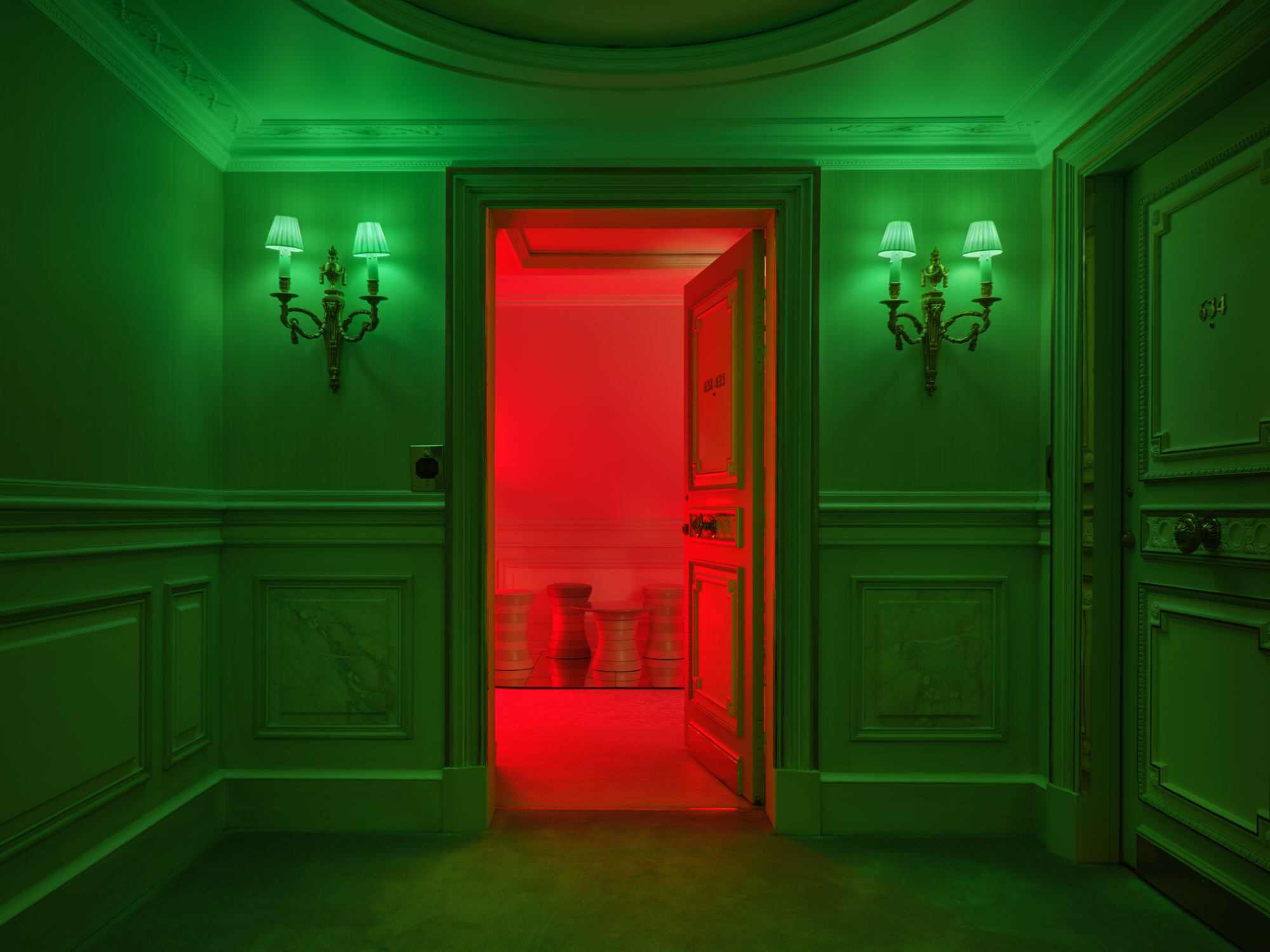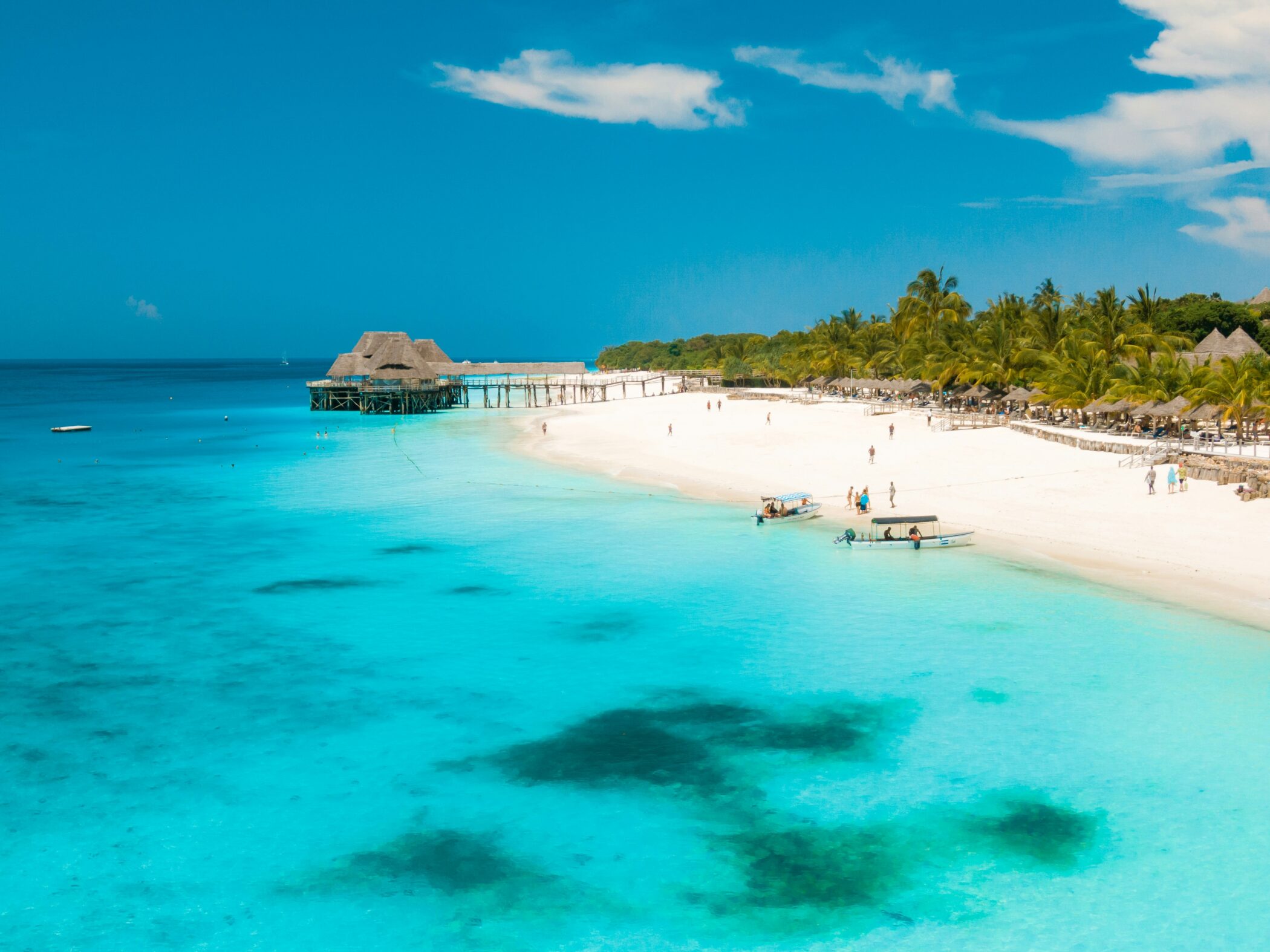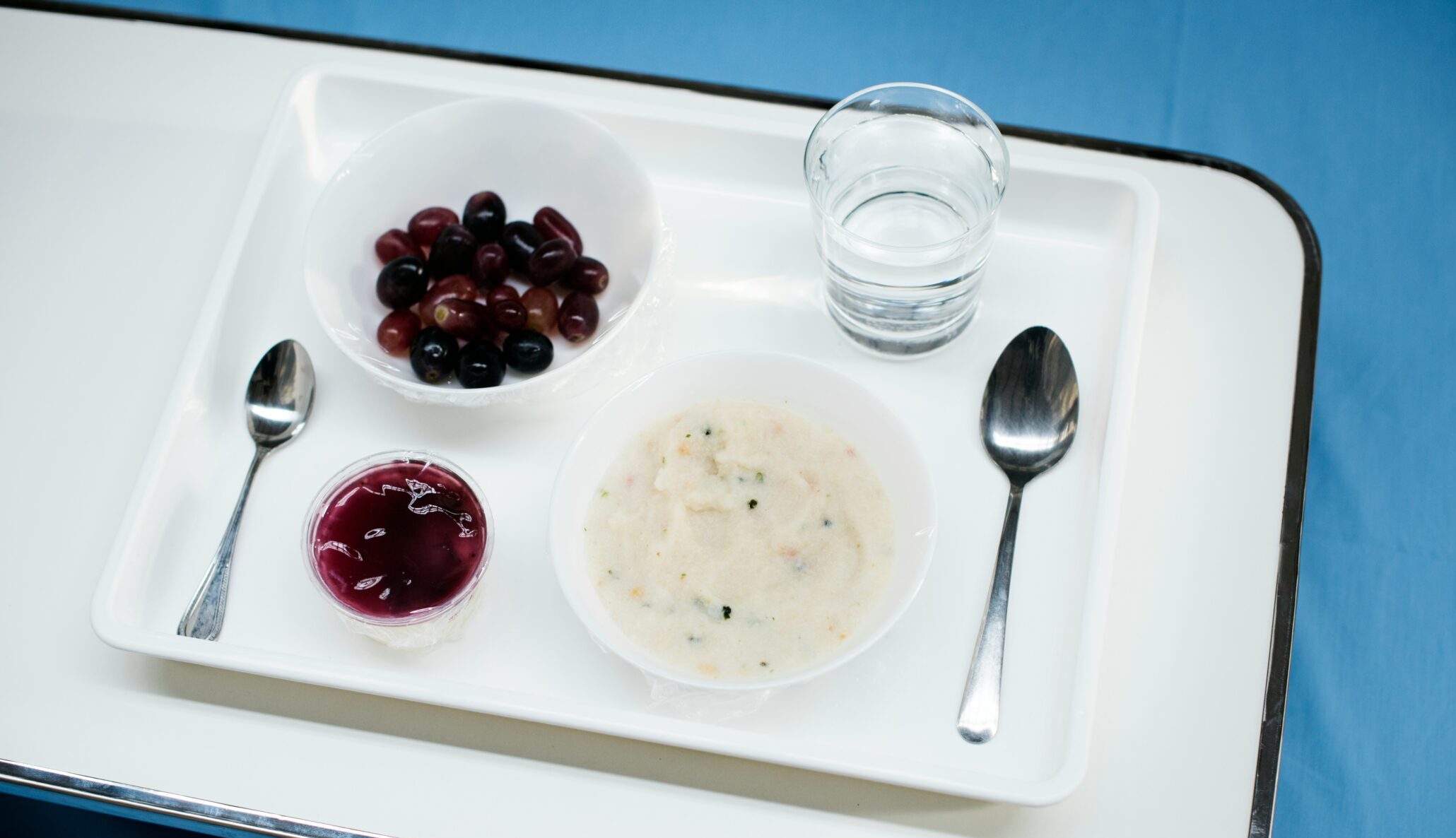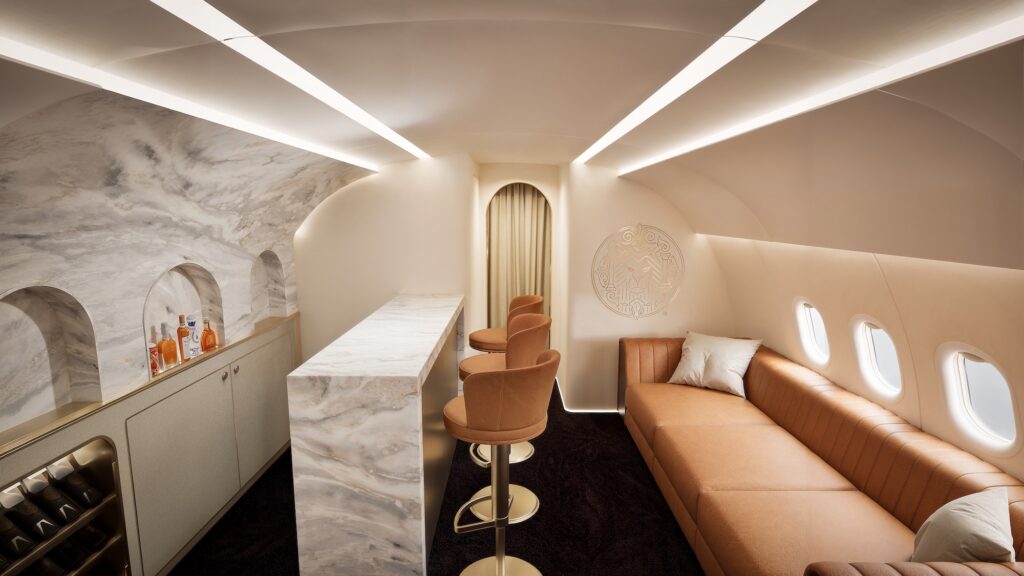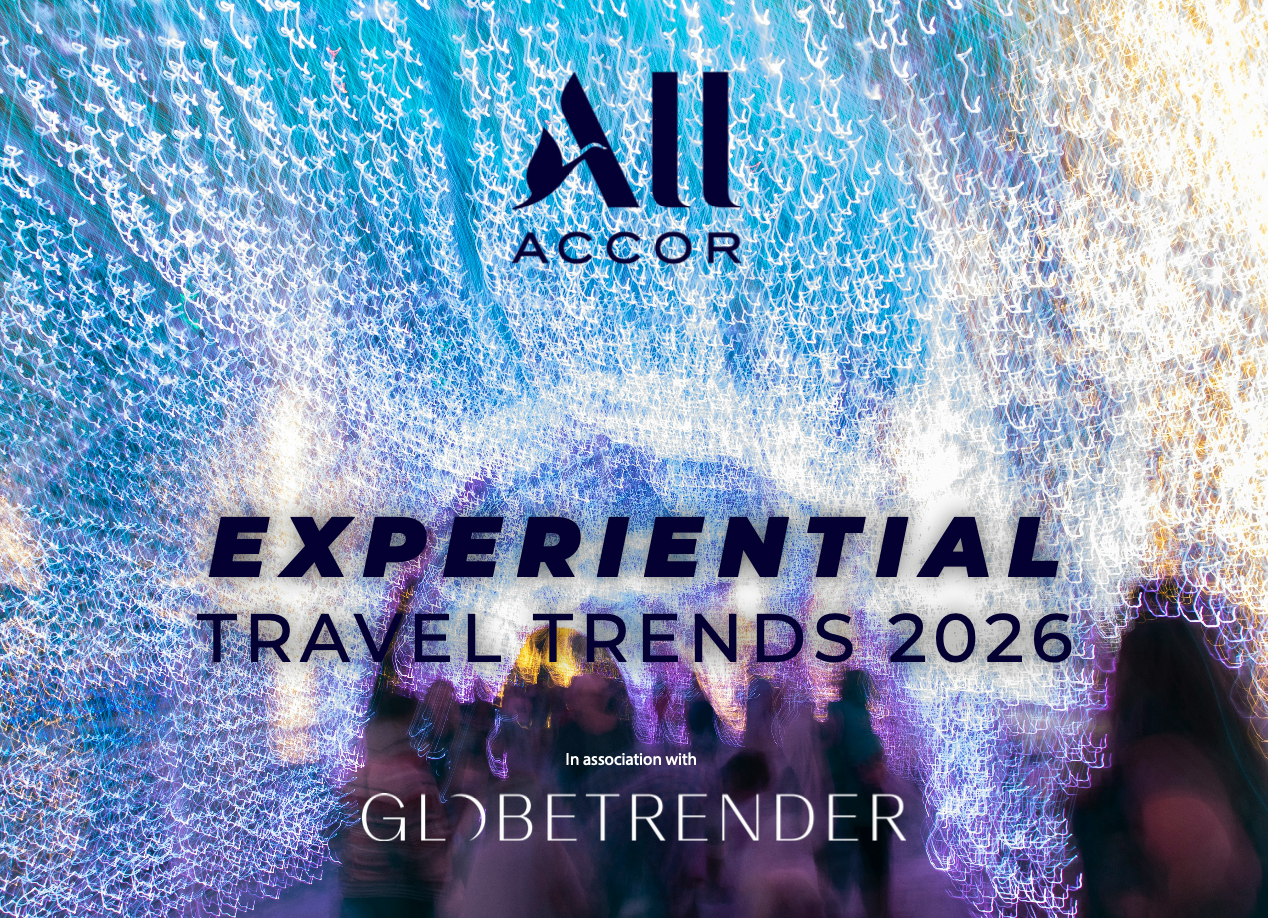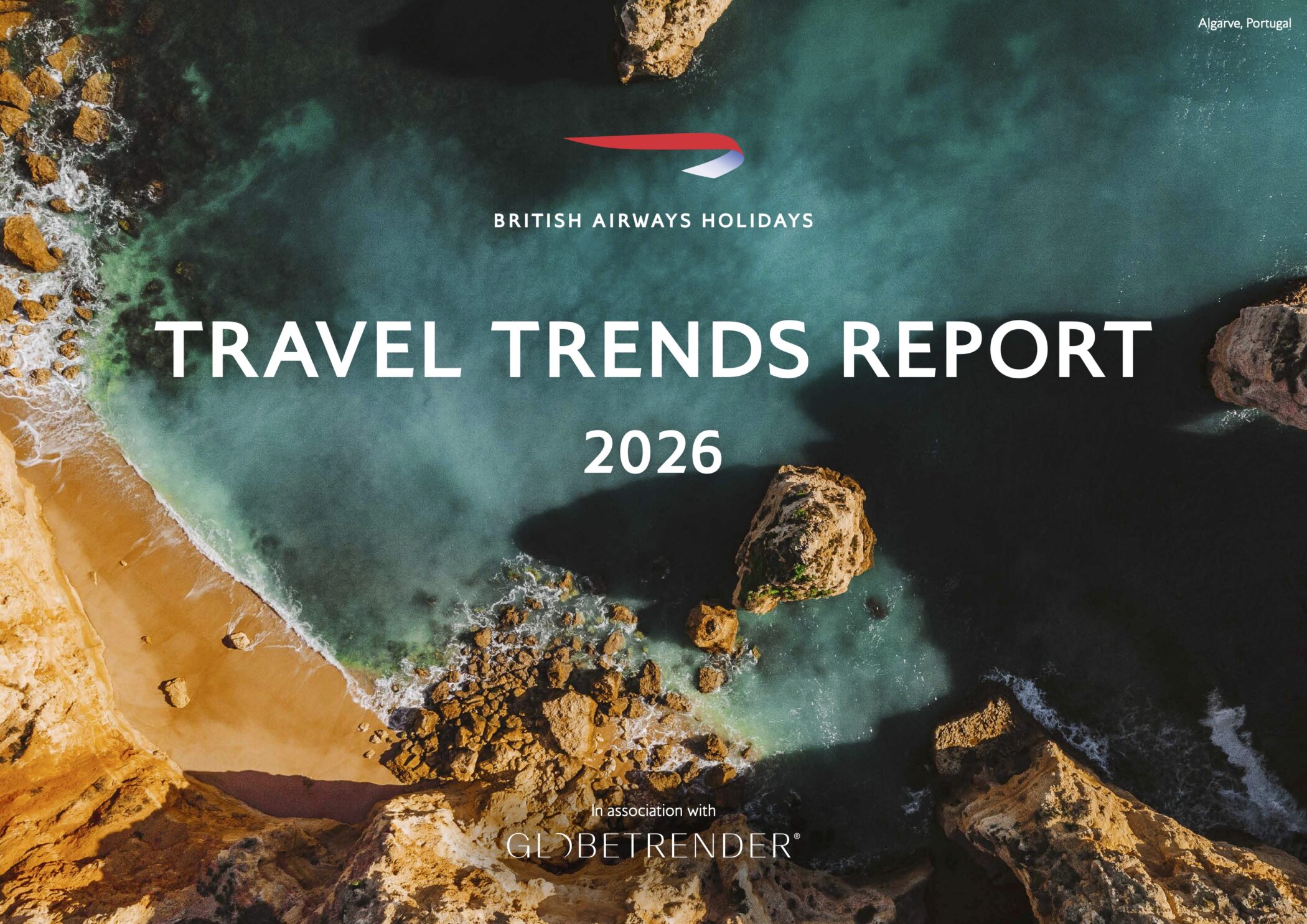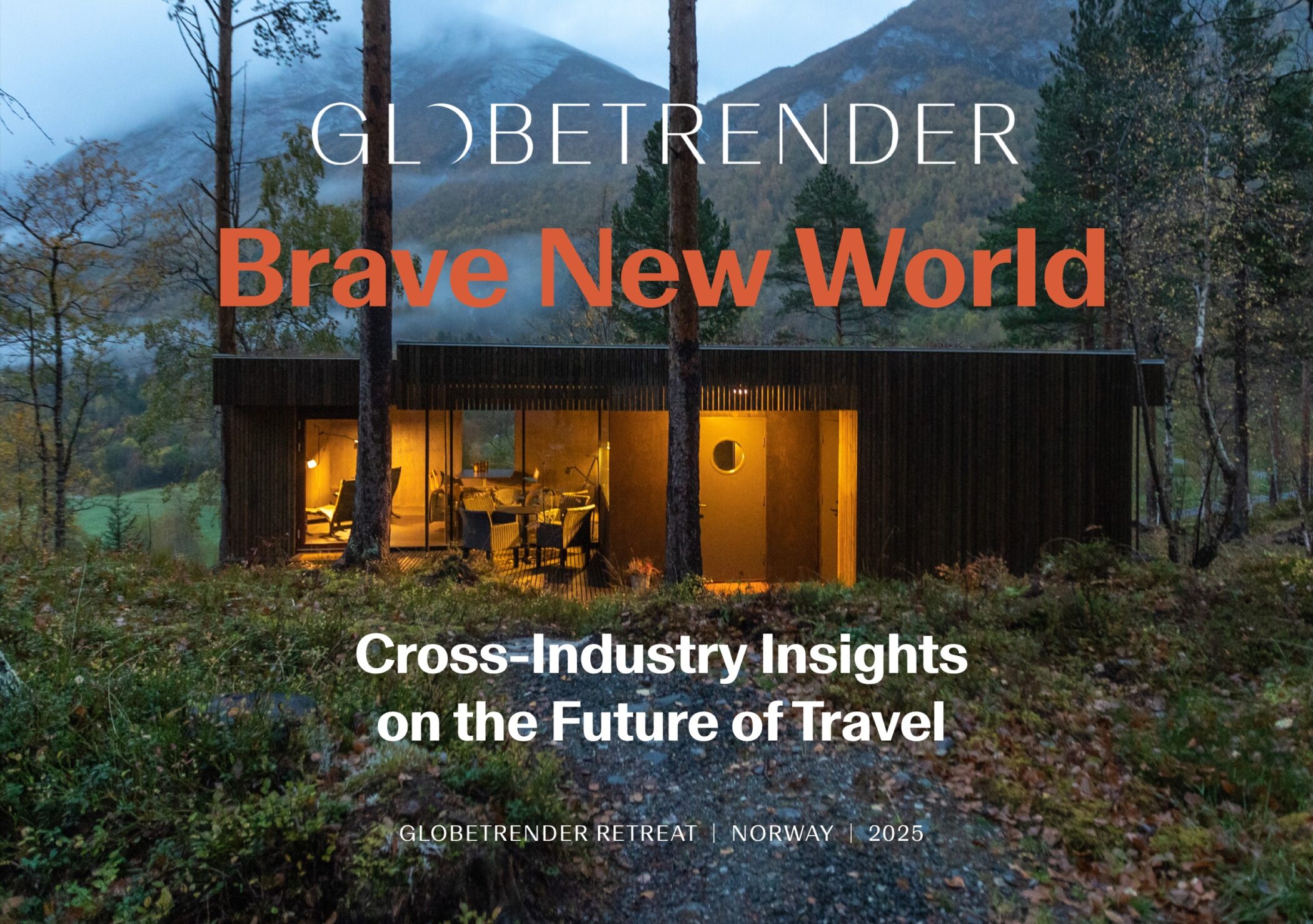VistaJet launches private aviation sleep programme
VistaJet has introduced an expert science-led sleep programme to help travellers recover more effectively, using circadian principles, deluxe amenities and tailored in-cabin routines. Olivia Palamountain reports
VistaJet has launched a new sleep programme designed to make long-haul private flights less disruptive to the body’s natural rhythms. The move follows a rise in overnight and multi-time-zone journeys across its network, where more than 58% of flights now cross several time zones.
With many adults affected by poor sleep and irregular rest patterns, the company has created a structured approach that uses lighting, temperature and nutrition to support deeper recovery in the air.
The programme was developed with longevity specialist Peter Attia, working alongside VistaJet’s in-house nutritionist and a team of trained cabin hosts. Together, they have shaped a system that mirrors how the body prepares for rest on the ground. 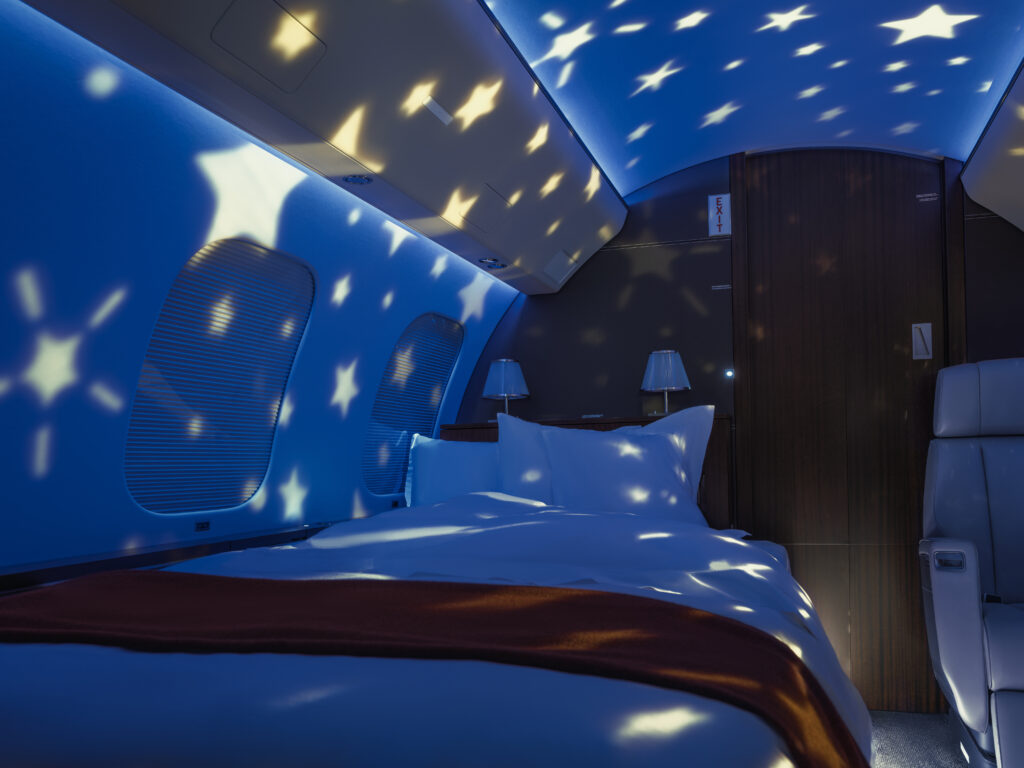 Before sleep, the cabin is arranged according to each member’s preferred routine, with lighting softened and sound reduced to support melatonin release. Guests are offered a selection of sleep aids, including an ultra-soft eye mask, bio-based earplugs, Bonsoir pyjamas, baby alpaca throws, hypoallergenic bedding and a choice of calming, non-caffeinated teas served as a bedside drink.
Before sleep, the cabin is arranged according to each member’s preferred routine, with lighting softened and sound reduced to support melatonin release. Guests are offered a selection of sleep aids, including an ultra-soft eye mask, bio-based earplugs, Bonsoir pyjamas, baby alpaca throws, hypoallergenic bedding and a choice of calming, non-caffeinated teas served as a bedside drink.
Temperature plays a central role. Cabins are typically set between 18 and 21°C, a range shown to support natural sleep, and can be adjusted on request before settling down. Lighting is gradually dimmed and turned off once passengers are asleep, unless they prefer otherwise. Cabin hosts remain attentive throughout, maintaining the environment so that deep rest is not interrupted.
During sleep, guests can make use of small comforts designed to create a sense of ease, such as cashmere socks, books from the onboard library and soothing playlists available through noise-cancelling headphones. Face cream is provided to help skin recover in the dry cabin air, while a sleep journal encourages travellers to clear their minds before lying down. 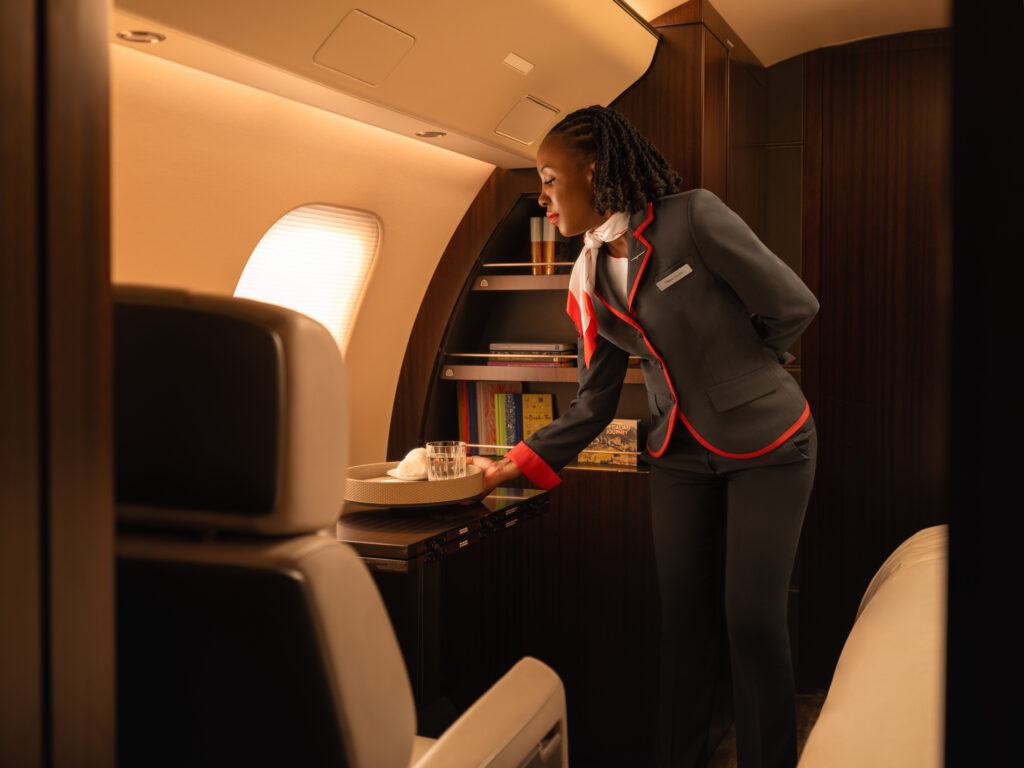 Passengers are also invited to set their devices to the arrival time to help the brain begin adjusting to a new time zone, with charging stations positioned away from the sleeping area to minimise distraction.
Passengers are also invited to set their devices to the arrival time to help the brain begin adjusting to a new time zone, with charging stations positioned away from the sleeping area to minimise distraction.
Waking is treated as its own phase. Lighting is raised gently and temperature adjusted to mirror a natural morning environment. Cabin hosts ask in advance how each guest wishes to be woken and what they would like to drink, whether an electrolyte beverage, fresh juice or a warm drink. A suggestion to refresh the face with cold water offers a simple way to help skin bounce back before landing.
Gemma-Anne Jones, head of cabin service innovation at VistaJet, says the programme draws on the expertise of crew who experience time-zone shifts regularly. “Their expertise ensures every environment on board is precisely tuned – from light and temperature to texture – ensuring every flight supports complete rest,” she says. This includes support for short naps on daytime flights, which can be set up quickly for travellers needing only a brief reset. The initiative reflects the needs of high-performing travellers who rely on mental clarity and sustained focus. Racing driver Charles Leclerc, a VistaJet ambassador, describes sleep as essential for staying sharp after long-distance travel. Research from McKinsey supports this, showing that most global executives are dissatisfied with both the amount and quality of sleep they get.
The initiative reflects the needs of high-performing travellers who rely on mental clarity and sustained focus. Racing driver Charles Leclerc, a VistaJet ambassador, describes sleep as essential for staying sharp after long-distance travel. Research from McKinsey supports this, showing that most global executives are dissatisfied with both the amount and quality of sleep they get.
The programme extends beyond the aircraft through VistaJet’s Private World network, connecting members with partners offering recovery-focused experiences. Options include biofeedback-based sleep therapies at Lanserhof in Austria and Germany, restorative rituals at Six Senses Zighy Bay in Oman, TAIM-based night-time routines at Zulal Wellness Resort in Qatar, diagnostic-led programmes at Chiva-Som in Thailand, sensory sleep rituals at ÀNI Private Resorts in the Caribbean and Asia, and pre-sleep yoga and hydrotherapy at Marina Bay Sands in Singapore.
Families and pets have also been considered, with cabins set up to help children follow familiar bedtime patterns and spaces adapted to keep animals calm and comfortable across long journeys.





